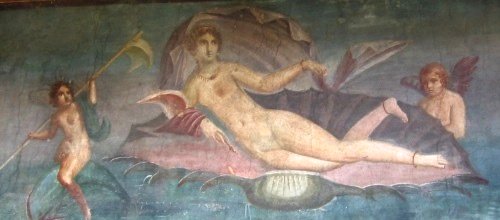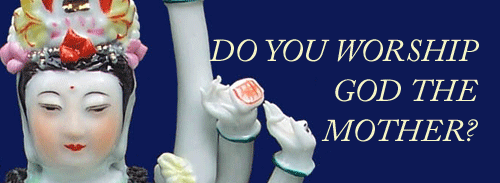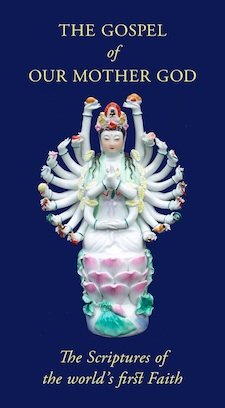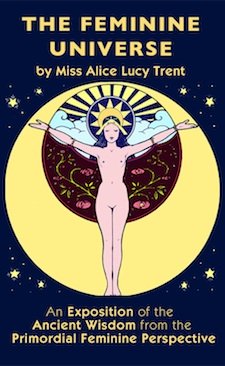Roman Goddess Venus
Universal Divine Love
The Roman Goddess Venus has often been seen as a mere symbol of carnal love in patriarchal times, and while her Greek form, Aphrodite, has sometimes been seen in a more philosophic light, the same patriarchal reductionism has tended to apply.
 Venus Anadyomene (Venus rising from the sea) from a Pompeian mural
Venus Anadyomene (Venus rising from the sea) from a Pompeian muralVarious classical legends have grown up about the Roman Goddess Venus and her Greek counterpart, representing her as all-too-human in her amours and jealousies.
Some of these have an esoteric meaning and some are mere patriarchal inventions, but we refer to them as legends rather than by the familiar but misleading term "classical myths" because true mythos is something of a higher order than these; expressing, in the language of Archetype, fundamental truths that are beyond the grasp of discursive reason.
Such legends, at their best, have the character less of true myth than of folklore, in which it is usual for Archetypal figures and events to be unduly humanized and individualized [see Mythology and Folklore for a fuller explanation of the distinction].
Indeed the decline of the classical world from a fully operative Tradition into a "Paganism" properly so-called (and thus requiring the incursion of a new but fully operative Tradition such as Christianity) is precisely characterized by this process of "folklorization", which perhaps gained its initial impetus from the patriarchal process of the trivialization of Our Mother God.
It may be noted in passing that the related Indo-European "polytheistic" system now termed Hinduism, unlike its Graeco-Roman and Germanic sisters, did not trivialize Our Mother God but in many cases re-elevated Her to Her true position as Supreme Deity: and that "Hinduism", unlike its polytheistic relatives, survives to this day as a fully functional Tradition.
Let us then look less at the legends than at the fundamental characteristics of the Roman Goddess Venus.
Venus is universally associated with the sea, and with the Morning and Evening Star. Like the Our Lady Mary, she bore the title Stella Maris: "Star of the Sea". Like the Virgin Mary, her sacred flower is the rose, and indeed she was sometimes simply called "Mari" (meaning Mother/Sea-Goddess).
Now, while these are universal attributes of Our Mother God, they are also specific to the Sushuric, or Venusian, aspect of Dea and also to Her creative function.
The association of Our Lady Mary with Our Mother God as Creatrix is examined in our page on Creation Myths and the Virgin Mary. But why should the Sushuric function, as typified by the Roman Goddess Venus and her cognates, be linked to Dea as Creatrix?
The Orphics, preserving a more ancient tradition than that understood by the classical world as a whole, saw Venus/Aphrodite not as a goddess who rules over carnal love but rather as the cosmogonic goddess who gives the irresistible urge to the Aethyr to create forms out of the substance of the Earth.
This is also the deeper meaning of the title of the Roman Goddess Venus Genetrix.
The profound connexion between love and generation, not merely in its human reflection, but as the very reason for the existence of the universe, is so fundamental as to require a page of its own: and, as we shall discover, this important truth is deeply connected with the inner meaning of the very name of the Roman Goddess Venus.
Please proceed to Venus, Goddess of Love and Creation where we shall explore these matters in greater depth.
See also:
Creation Myths and the Virgin Mary
Please support the Chapel of Our Mother God
Send Questions or Comments on Roman Goddess Venus
Chapel of Our Mother God Homepage
All written material at the Chapel of Our Mother God is copyright. Should you wish to reproduce any portion please contact us for permission.
The Many Names of Dea
Gospel of Our Mother God
The Gospel of Our Mother God is a collection of inspirational texts, prayers and daily inspiration for the Mother-Faith devotee or household.
The Feminine Universe
The Other Philosophy
Everything you have ever heard comes out of the patriarchal world-view. Its materialism, its religion, even its feminism. Here is the other way of seeing the world; the natural way: the way that everyone saw things before patriarchy and will again when patriarchy is long forgotten.


